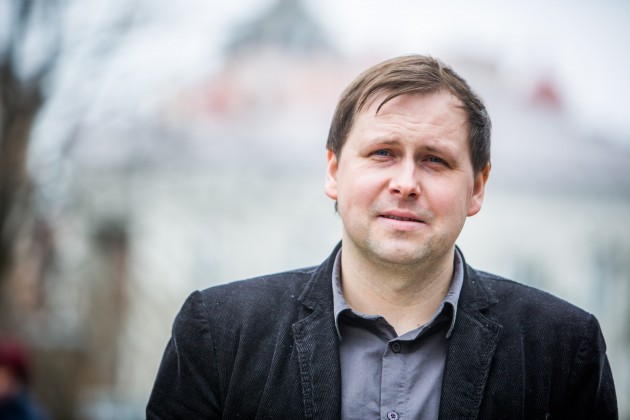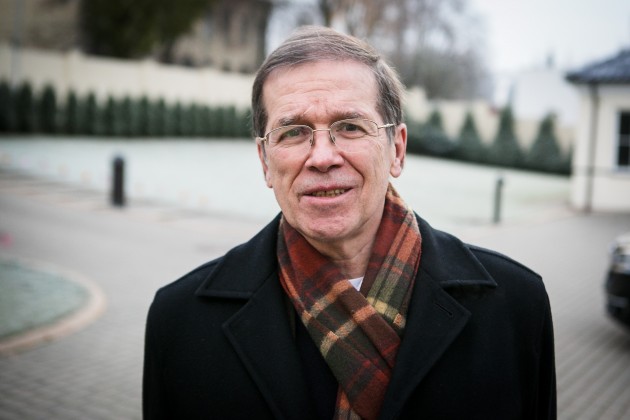
On March 4 the Homeland Union – Lithuanian Christian Democrats announced their intent to implement significant and never before seen in Lithuanian politics changes. The party chairman, TS-LKD candidates to the post of president, member of the European Parliament, mayor or member of Seimas in a single mandate district will be elected not just by Conservative party members, but also those outside the party, Alfa.lt reported.
Political scientists predict that the currently calmed clash between the Conservatives and Christian Democrats in the party could be shifted to either direction by this. However will the openness and internal democracy declared by Gabrielius Landsbergis not end up turning opposite?
Such primaries rare even in Western Europe
Open primaries are not frequently seen even in Western democracies, making the TS-LKD’s move particularly brave, albeit the details of how exactly this will work have yet to truly surface. It could go the way of the Italian Democratic Party where its chairman can be elected by even immigrants and individuals as young as 16 years old.
The French socialists have chosen their party’s representatives this way since 2007, while the conservative French Republicans took the same step this year, likely in order to consolidate their party’s votes prior to the first round of national elections, where Marine Le Pen’s National Front poses a significant challenge to the traditional major parties.

VU TSPMI docent, political scientist Mažvydas Jastramskis says that this novelty is brave, but for now it is difficult to say what impact it will have on the Conservative Party and the competition between Lithuanian parties. He notes that the decision is motivated by public relations demands to a great extent and will require a number of safeguards to be put in place.
Strengthening Landsbergis or reviving the Christian Democrats?
While the move has been touted to be a development of internal democracy, the results may not necessarily lead to the flourishing of democracy within the party. Non-party members are likely to be less informed and less involved than party members, less attentive to the comings and goings within the party.
M. Jastramskis does not believe that the changes could unbalance the party, however he notes there are many variables in play to keep in mind. This ranges from the number of voters to the range of their ideologies and identities. Furthermore he notes that the party’s leader can be emboldened by such widened support, potentially leading to a situation where the slogan voiced on Saturday – “United and open” could turn into a half-truth – “Openness without unity”.
While the TS-LKD elections recently showed that G. Landsbergis has majority support in the party, the rift between the two value sides in the party has not vanished. The new election regulations could very well cement Landsbergis’ dominance in the party however, considering his success in the multi-mandate electoral district.

Docent Kęstutis Girnius suggests an alternative scenario is possible, noting that the innovations could lead to a renaissance of the Christian Democrat wing, noting that the new voting participants could actually be more in favour of the Christian Democrat agenda, shifting the balance their way.
Meanwhile Gabrielius Landsbergis himself told Alfa.lt on Monday that he simply hopes to attract new members to the party and is not worried that party members could rebel against the novelties, noting that many of the TS-LKD branches often feel disappointment at a lack of participation and a need for new members.
Competitors only observing for now
Could the idea of open primaries be adopted by other Lithuanian political powers, similarly to how the Social Democrats adopted internal general chairman elections this spring, following the Conservatives’ example from the Andrius Kubilius era? M. Jastramskis and K. Girnius have differing thoughts on the matter. M. Jastramskis notes that the Conservatives are uniquely positioned to make use of such an approach, while the other parties’ electorates do not identify with their parties as strongly, particularly considering the “Farmer’s” unstable electorate. He points out that it is hard to say what sort of outcome other parties can expect, meanwhile the Conservatives could draw more participation through such a move.
Meanwhile K. Girnius believes that other parties could be emboldened if the Conservatives successfully implement this new feature, with the expert pointing out that some parties, such as the SocDems, perhaps benefitting from such a feature even more than the Conservatives, helping to attract voters from other similar parties.
The nearest elections in Lithuania are to be held in 2019, with three different elections to be held – municipal elections, presidential elections and Seimas elections. By then the Conservatives will have to adequately prepare and their rivals – observe and analyse their successes and failures.

Be the first to comment